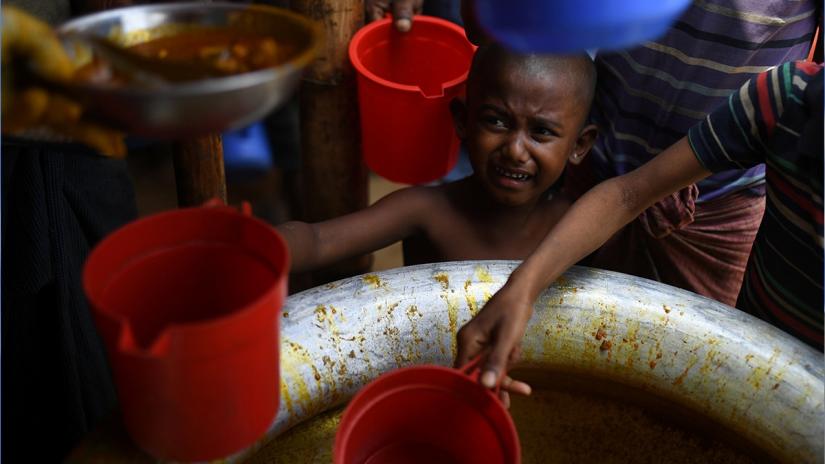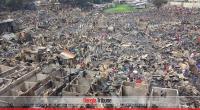 The UN child agency on Friday (Aug 16) called for improvement in educational opportunities for Rohingya children living at refugee camps in south-eastern Bangladesh, reports Anadolu.
The UN child agency on Friday (Aug 16) called for improvement in educational opportunities for Rohingya children living at refugee camps in south-eastern Bangladesh, reports Anadolu.
“Children and young people are clamouring for more than survival; they want quality education that can provide a path to a more hopeful future,” UNICEF said in a report.
The Rohingyas, described by the UN as the world's most persecuted people, have faced heightened fears of attack since dozens were killed in communal violence in 2012.
The UN documented mass gang rapes, killings including infants and young children, brutal beatings, and disappearances committed by Myanmar state forces. In its report, UN investigators said such violations may have constituted crimes against humanity.
The UNICEF report titled 'Beyond Survival: Rohingya Refugee Children in Bangladesh Want to Learn' pointed out the difficulties Rohingya children are facing at the refugee camps.
According to the report, 97% of children aged 15 to 18 are still not attending any type of educational facility. “Parents are concerned that the longer their children are deprived of education, the greater the risk that they will be exposed to exploitation and abuse,” the report said.
UNICEF noted that education for Rohingya girls lags even further behind. “In most cases, when girls reach puberty, they are withdrawn from school by their families,” it added.
The UN agency called on the Myanmar government and the international community to play their part for the safe return of Rohingya refugees to their homes.
“The solution to the crisis is to allow Rohingya refugees in Bangladesh to voluntarily return to their homes in the Rakhine State of Myanmar, safely and with dignity, to live in peace and harmony with their neighbours as full members of society,” it said.
Besides lack of education, the report said, Rohingya children are also facing health and nutrition problems as well as access to safe water and sanitary facilities.
Health officials and families must remain vigilant against a possible cholera outbreak, it said.
“The basic day-to-day needs of the Rohingya are being met. But providing for their longer-term needs – especially their educational needs – remains a major challenge in which the affected population needs the full support of the international community,” the report added.
Aug. 25 will mark two years since more than 750,000 Rohingya refugees, mostly children and women, have fled Myanmar and crossed into Bangladesh after Myanmar forces launched a crackdown on the minority Muslim community, according to Amnesty International.


